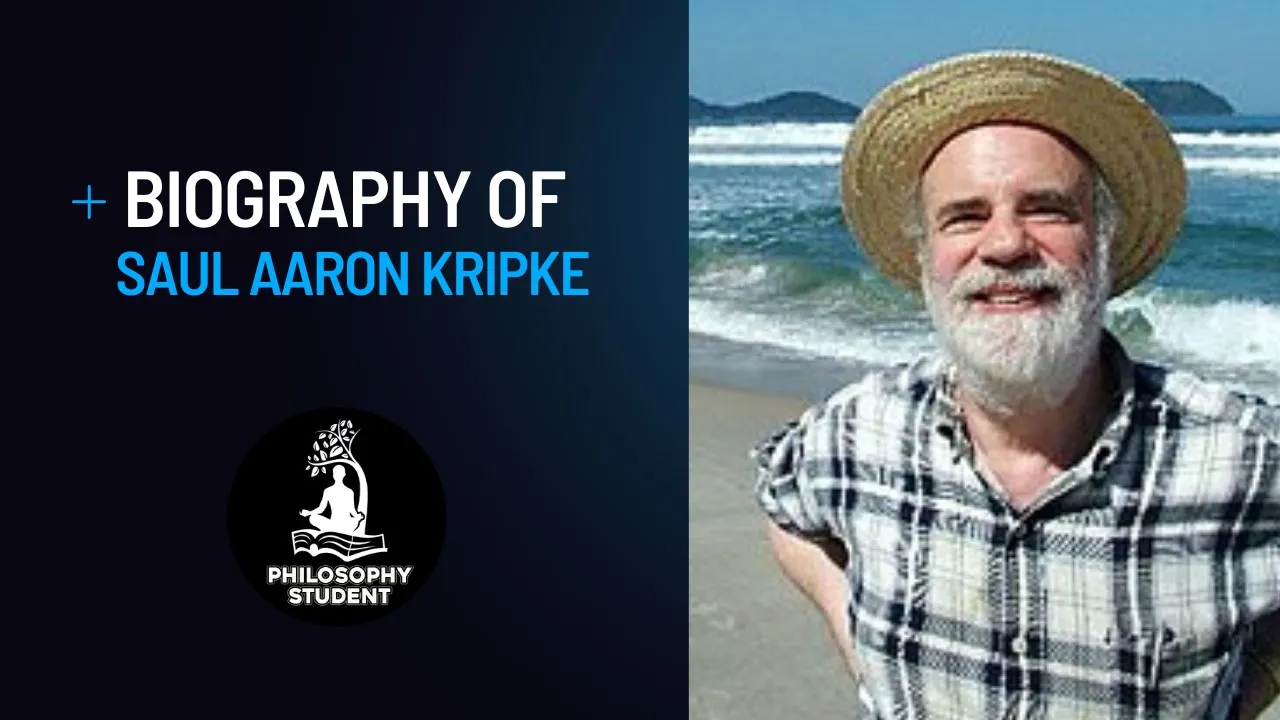Saul Aaron Kripke was born on November 13, 1940, in Bay Shore, New York. His father was a rabbi, and his mother a writer of Jewish educational books for children. Kripke grew up in Omaha, Nebraska, where his father led Beth El Synagogue, the city’s only Conservative congregation. He was educated in Omaha public schools and was self-taught in Ancient Hebrew by age six, read Shakespeare’s complete works at nine, and read Descartes and was solving complex math problems during elementary school. At seventeen, he wrote a completeness theorem in modal logic, which was published the following year.
He graduated from high school in 1958 and enrolled at Harvard University, from which he graduated summa cum laude in 1962 with a bachelor’s degree in mathematics—his only earned academic degree. He received a Fulbright Fellowship and was appointed to the Society of Fellows in 1963.
Kripke taught briefly at Harvard but in 1968 began teaching at Rockefeller University in New York City, remaining with this institution until 1976. In 1978 he accepted a chaired professorship at Princeton University and in 2002 began teaching at the CUNY Graduate Center. He was appointed a distinguished professor of philosophy there in 2003. He holds numerous honorary degrees, is a member of the American Philosophical Society, an elected Fellow of the American Academy of Arts and Sciences and was a Corresponding Fellow of the British Academy. He was awarded the Schock Prize in Logic and Philosophy in 2001.
Kripke is best known for his work in mathematical logic, modal logic, philosophy of language, philosophy of mathematics, metaphysics, epistemology, and recursion (computability) theory. “Kripke semantics” is named for him. It is a form of relational, or frame, semantics and is a formal semantics for application to non-classical logic systems, which Kripke created during the late 1950s and early 1960s in collaboration with André Joyal. Originally intended for application to modal logics—that is, to represent statements concerning necessity and possibility—Kripke semantics has also been used in intuitionistic logic and other non-classical systems.
In addition to his work in logic, Kripke is credited with stimulating a revival in metaphysics by positing that necessity is inherently a metaphysical notion distinct from the epistemic notion of a priori. He argues that there are necessary truths that are known a posteriori, such as the statement that water is H2 O. This led in 1970 to a Princeton lecture series, which was published ten years later as a book, Naming and Necessity. In this work, he attacked the Frege-Russell descriptivist theory of names (the idea that the semantic content of a proper name is identical to the descriptions associated with it by speakers) and proposed instead a causal theory of reference, in which a name refers to an object by virtue of a causal connection with the object as mediated through communities of speakers.
Kripke further contributed to the philosophy of language by proposing an original interpretation of Ludwig Wittgenstein’s philosophy in Wittgenstein on Rules and Private Language (1982), contending that Wittgenstein’s posthumously published Philosophical Investigations is based on a rule-following paradox that militates against the possibility of ever following rules in the use of language.
In his 1975 article “Outline of a Theory of Truth,” Kripke proposed a formal alternative to Alfred Tarski’s “orthodox” theory of truth. By letting truth be a partially defined property over the set of grammatically well-formed sentences in a language, Kripke demonstrated that a language can consistently contain its own truth predicate, a possibility Tarski categorically denied.




































